Business
Ovia, Elumelu, Agbaje affected as new CBN rule unseats bank chiefs
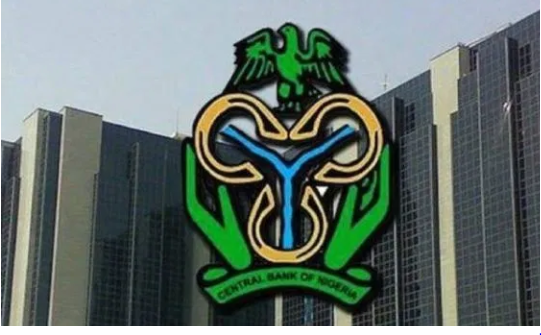
The Central Bank of Nigeria (CBN) says bank executive directors (EDs), deputy managing directors (DMDs), managing directors (MDs), and non-executive directors (NEDs) can only serve a cumulative tenure of 20 years across the banking industry.
The new directive is contained in a circular addressed to all deposit money banks (DMBs), signed by Chibuzor Efobi, director of financial policy and regulation department, CBN, and seen by TheCable.
The circular was a revision of the regulatory requirements for the tenure of executive management and non-executive directors of DMBs and financial holding companies in the Code of Corporate Governance for Banks and Discount Houses (Ref: FPR/DIR/ClR/GEN/01/004).
CBN said the tenure review was part of measures aimed at strengthening governance practices in the banking industry.
“The tenure of executive directors (ED), deputy managing directors (DMD) and managing directors (MDs) shall be in accordance with the terms of their engagement approved by the board of directors of banks, subject to a maximum tenure of ten (10) years,” the apex bank said.
“Where an executive who is a DMD becomes the MD/CEO of a bank or any other DMB before the end of his/her maximum tenure, the cumulative tenure of such executive shall not exceed twelve (12) years.
“However, for an executive (ED) who becomes a DMD of a bank or any other DMB, his/her cumulative tenure as ED and DMD shall not exceed 10 years.
“Non-executive directors (NEDs), with the exception of independent non-executive director (INED), shall serve for a maximum period of twelve (12) years in a bank, broken into three terms of four years each.
“EDs, DMDs and MDs who exit from the board of a bank either upon or prior to the expiration of his/her maximum tenure, shall serve out a cooling-off period of 1 year before being eligible for appointment as a NED to the board of directors.
“NEDs who exit from the board of a bank either upon or prior to the expiration of his/her maximum tenure of 12 years (three terms of four years each), shall serve out a cooling-off period of 1 year before being eligible for appointment to the board of directors of any other DMB.”
CBN added that the above tenure requirements shall apply “effective the date of this circular”.
WHO WILL BE AFFECTED
TheCable understands that the implementation of the new rule will see the exit of many top bank executives in Nigeria. Those who will be affected include:
Jim Ovia
First on the list is Jim James Ovia, a Nigerian businessman.
A native of Delta state, Ovia founded Zenith Bank in 1990. He retired from the bank in 2010 following a similar CBN policy which limited the tenure of banks chief executive officers (CEOs) to a maximum of 10 years.
However, the billionaire was later appointed as board chairman and non- executive director of the bank in 2014.
Tony Elumelu
At 34-years-old, Elumelu was the CEO of the defunct Standard Trust Bank, a company he later merged with United Bank for Africa (UBA) in 1997.
With the merger, he remained as the bank’s CEO and served for 13 years until his retirement in 2010 when the said policy of 10-year tenure limits for bank CEOs was implemented by the CBN.
Elumelu was appointed chairman of UBA in 2014, replacing Ambassador Joe Keshi.
Segun Agbaje
The astute banker moved from working for Ernst & Young in the US in 1988 to Guaranty Trust Bank (GTBank) — now Guaranty Trust Holding Company (GTCO) — as a pioneer staff in 1991 and rose through the ranks to become executive director in the year 2000 and deputy managing director in 2002.
Agbaje was later appointed as the substantial MD and CEO of GTBank in June 2011, when Tayo Aderinokun passed.
Herbert Wigwe
After over 10 of service, Wigwe left GTBank as an ED to co-lead the transformation of Access Bank Plc in March 2002 as DMD.
He was appointed group managing director/CEO effective January 1, 2014 and served in that capacity till May 2022. Wigwe was subsequently appointed a non-executive director of the bank effective May 2022.
Business
Nigeria’s GDP rate grew by 3.46% in Q3 2024, says NBS

The National Bureau of Statistics (NBS) says Nigeria’s annual gross domestic product (GDP) grew by 3.46 percent in the third quarter (Q3) of 2024.
The NBS, in its GDP report published on Monday, said the growth rate is higher than the 3.19 percent recorded in Q2 2024.
Business
Dangote refinery reduces ex-depot price of petrol to N970 for oil marketers

The Dangote Petroleum Refinery has announced a reduction in its ex-depot price of premium motor spirit (PMS), also known as petrol, to N970 per litre for oil marketers.
This is a cut from the refinery’s N990 ex-depot price announced earlier this month, according to a statement on Sunday.
The slash would help marketers save about N20 on each litre of petrol bought from the Lekki-based plant.
Anthony Chiejina, Dangote Group’s chief branding and communications officer, said the move is the refinery’s way of appreciating Nigerians “for their unwavering support in making the refinery a dream come true”.
“In addition, this is to thank the government for their support as this will complement the measures put in place to encourage domestic enterprise for our collective well-being,” the statement reads.
“While the refinery would not compromise on the quality of its petroleum products, we assure you of best quality products that are environmentally friendly and sustainable.
“We are determined to keep ramping up production to meet and surpass our domestic fuel consumption; thus, dispelling any fear of a shortfall in supply.”
Business
Allegation of missing fund untrue, says Access Bank
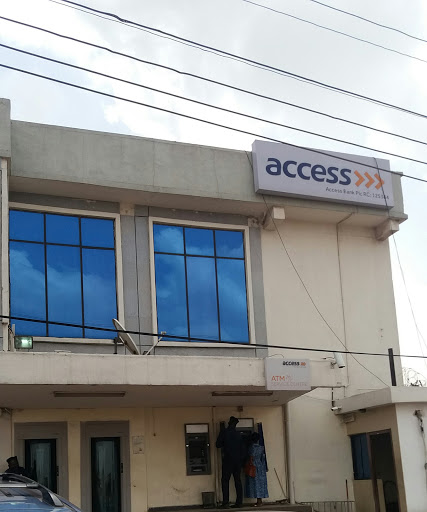
Access Bank Limited has dismissed as untrue allegations of missing fund and unethical behaviour.
The Bank in a statement said: “Our attention has been drawn to a video on social media wherein allegations of missing funds and unethical behaviour have been made against Access Bank PLC.
“First and foremost, we wish to emphasise that the safety and security of our customers’ funds are core priorities which we take seriously. Second, Access Bank Plc does not engage in or condone any unethical behaviour.
“In the instant case, the allegations of missing funds in the Bank are most untrue and baseless.
“There is no N500million or any other fund or amount missing from the subject customer’s account or from any other customer’s account with us.
“We and other independent stakeholders in the banking industry have thoroughly investigated these allegations and independently arrived at the same conclusions.
“Access Bank PLC operates with the highest ethical standards, and we protect our customers’ interests whilst also respecting privacy laws.
“Consequently, whilst we have engaged and will continue to engage with our customers, we must advise the public not to rely on or believe sensational and unverified claims that are designed to titillate and mislead the public.
“We remain committed to serving our customers.”
-
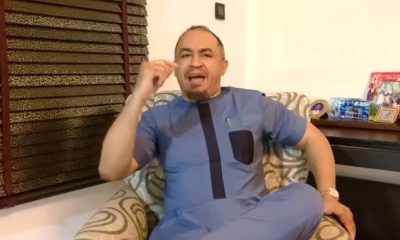
 Celebrities1 week ago
Celebrities1 week agoDaddy Freeze, Akah Nnani clash over Emmanuel Iren
-

 Business1 week ago
Business1 week agoLagos state government to commence upgrade of major junctions in Ikeja axis, seeks residents’ cooperation
-

 Politics1 week ago
Politics1 week agoDSS operatives arrest man with bags of cash during Ondo guber
-

 Special Features3 days ago
Special Features3 days agoIyabo Ojo, Brainjotter, Dayo Oketola, Penzaarville, Tomiwa and others to speak at the Bodex Social Media Hangout 5.0
-

 Health1 week ago
Health1 week agoFive ways to rid your home of ants
-
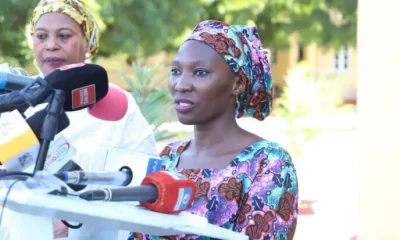
 News1 week ago
News1 week agoAlice Loksha, abducted UNICEF nurse, escapes captivity after 6 years
-

 News1 week ago
News1 week agoNnamdi Emeh: Suspect Facing Charges In Court, Process Independent Of Police Influence
-
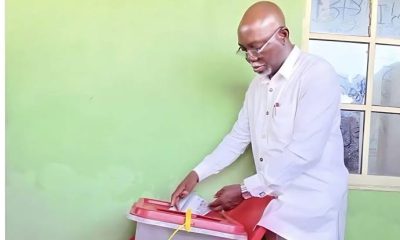
 Politics1 week ago
Politics1 week agoAiyedatiwa takes commanding lead in Ondo guber poll after winning 15 of 18 LGAs


















